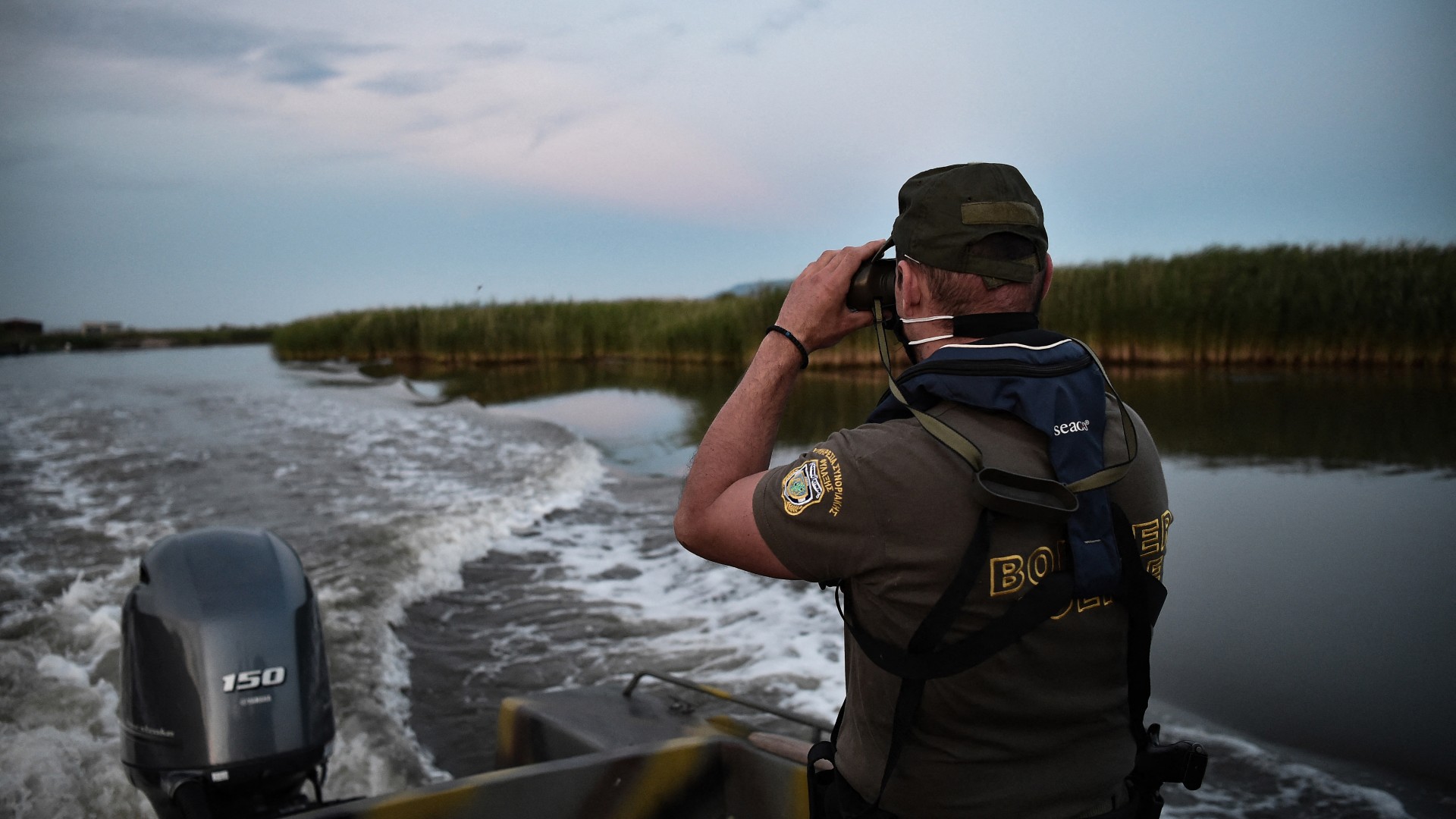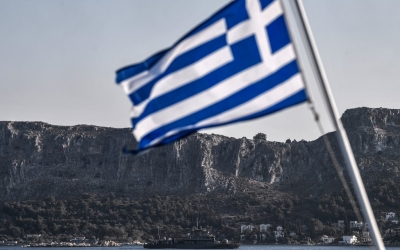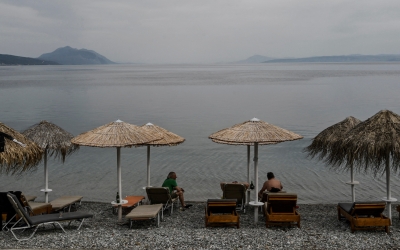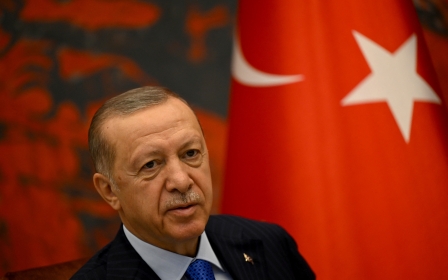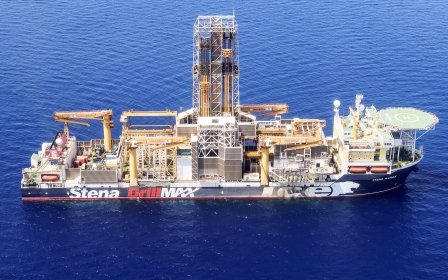Turkey-Greece tensions: A clash of nationalisms
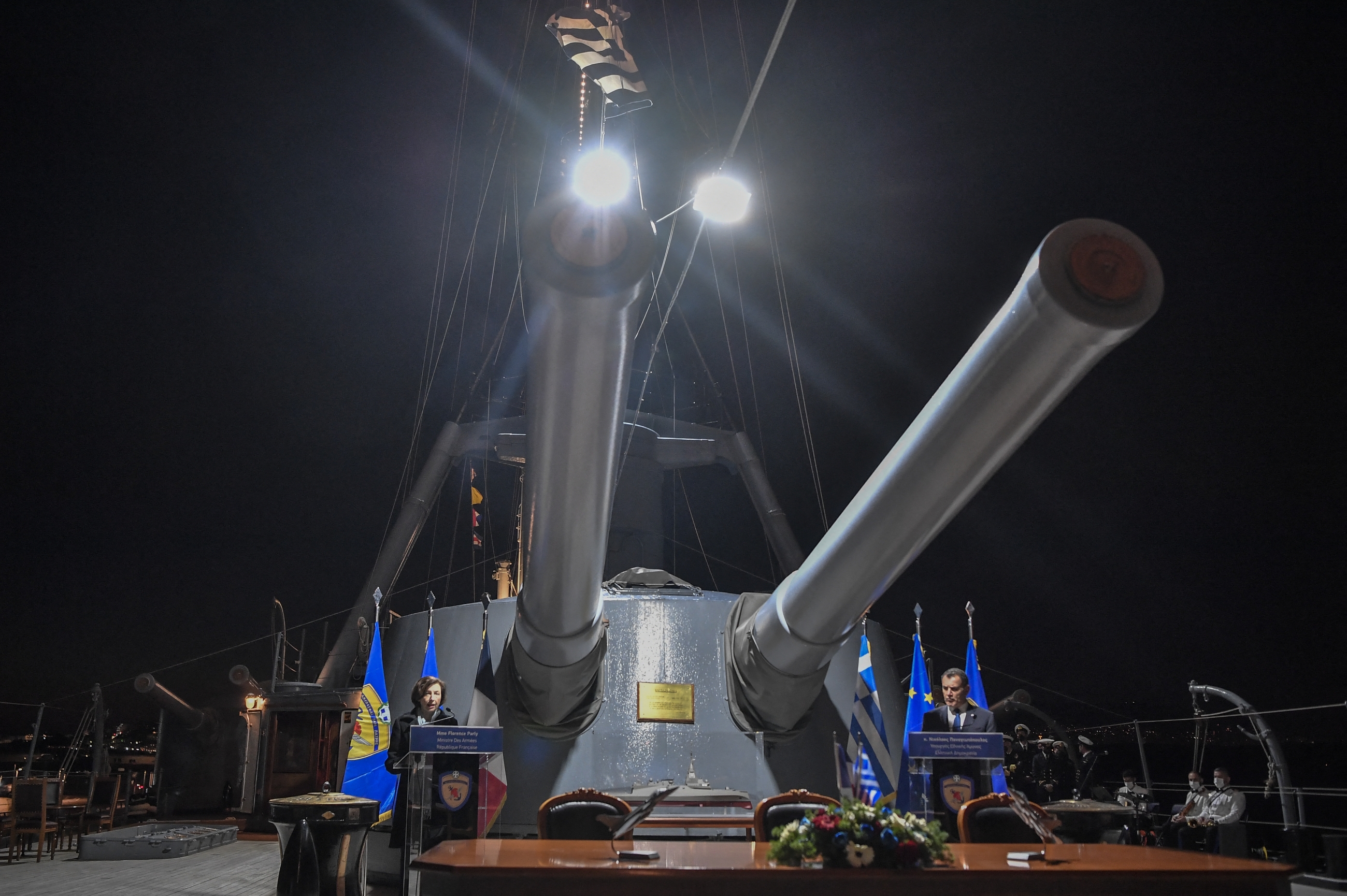
The Greek coastguard fired this week on a Turkish cargo ship sailing in international waters in the Aegean Sea. This was the latest round in an ongoing crisis that could lead to war between Greece and Turkey, two Nato allies.
When the Greeks invaded in 1919, they publicly claimed to have come as 'peacekeepers', bringing civilisation to the East as a racist cover for their territorial expansion
According to Hasan Gogus, the former Turkish ambassador to Greece: “We have several disputes with Greece in the Aegean Sea, such as the width of territorial waters, delimitation of the continental shelf, demilitarisation of islands or length of airspace. While all issues are interrelated, Greece only acknowledges the existence of the continental shelf dispute.”
He added: “Most of the Greek islands in the Aegean Sea are in close proximity to the Turkish mainland, such as Kastellorizo or Kos. Those islands were given to Greece [under the 1947 Paris Peace Treaty] on the condition of demilitarisation. However, Greece violates this provision.”
Greece claims that it is Turkey that is questioning and violating its sovereignty and airspace.
Greece’s ‘Great Idea’
New MEE newsletter: Jerusalem Dispatch
Sign up to get the latest insights and analysis on Israel-Palestine, alongside Turkey Unpacked and other MEE newsletters
The escalation in the Aegean is the latest in the saga of an aggressive Greek nationalism that has plagued the region since the beginning of the 19th century. Since the late 18th century, European powers have sponsored and instigated an anti-Ottoman and anti-Muslim nationalism centred on Greek Christian orthodoxy.
Indeed, Greek Christian nationalism for the next century would try to recover the lands of the Eastern Roman Empire (known in the West as Byzantium), including Constantinople, whose loss to the Muslim Ottomans was seen as reversible.
The Europeans helped the secessionist movement, led then by diaspora Greeks, to create the modern state known as Greece in the 1820s, and continue to encourage and nurture Greece’s “Great Idea” of territorial expansionism - called “enosis” in Greek - whose exploits in the early 20th century included the capture of the island of Crete in 1912-1913.
The fact that the emergent Turkish nationalism after World War I had to fight what it called its “war of independence” to defend the country against the Greek invasion of the Turkish region of Asia Minor in 1919 and Greece’s expansionist schemes to take over Istanbul, hardly endeared Greece to the Turkish nationalists who overthrew the Ottomans.
When the Greeks invaded in 1919, they publicly claimed to have come as “peacekeepers”, bringing civilisation to the East as a racist cover for their territorial expansion.
Indeed, in 1920, before the Turks pushed them back, Greek supporters of Prime Minister Eleftherios Venizelos - himself a Cretan who first became Greece’s prime minister in 1910 - hailed him as having created the Greece “of the two continents and of the five seas”.
Venizelos conspired against the Ottomans in late 1912 with Britain’s David Lloyd George and Winston Churchill.
The plan was that Greece would join the Entente powers in the approaching war so as to capture Asia Minor, and in return was promised Cyprus in exchange for permanent British naval bases on Greece’s islands. The Philhellene Lloyd George wanted the “Turk” out of Europe and did “not want him even to keep Constantinople".
European ‘Muslim-cleansing’
After the First World War, false claims made at the Paris Peace Conference that the Turks were massacring Greeks, which allegedly necessitated Greece’s intervention, were exposed by Britain’s own conference representative as nothing more than propaganda on the part of Venizelos.
As soon as the Greek forces landed in Turkey, it was they who began to slaughter the Turkish population, which led hundreds of thousands of Turkish Muslims to flee and precipitated the Turkish nationalists’ counteroffensive.
The ensuing war resulted in the 1922 defeat of Greece and a horrific population displacement of Christians from Turkey and Muslims from Greece. It solidified Greek nationalism even further, not to mention its impact on Turkish nationalism.
Indeed, the Greek collusion with European powers and Russia against the Ottomans at the beginning of the 19th century set in motion a genocidal war against Muslims between 1821 and 1922 across the Balkans, the Caucasus, and southern Russia. According to historian Justin McCarthy’s book Death And Exile: The Ethnic Cleansing of Ottoman Muslims, 5.5 million Muslims were killed and five million more were displaced as refugees.
The Greek Revolution’s sectarian Christian motivations led to massacres against Muslims early on, beginning in the Morea, where 15,000 Muslims were killed in March 1821, followed by many more across the land, and to which the Ottomans responded in kind, if not more brutally, especially in the case of the island of Scio (now Chios), with tens of thousands of Greek-speaking Christians brutally massacred.
Nonetheless, it was the Greek Revolution that “set a pattern for future revolutions in the Balkans,” especially with regards to massacres of Muslims (and Jews) and the “policy of ridding regions of their Turkish population,” which amounted to Muslim-cleansing.
Greek anti-Muslim nationalism would proceed to Muslim-cleanse Crete on the eve of World War I. This was followed by the Muslim-cleansing of Cyprus in the early 1960s onwards by Cypriot Greek nationalists supported by Greece, who also sought “enosis” with the mainland.
Ongoing ‘enosis’
As there had been more Greeks living in the Ottoman Empire than in “independent” Greece, the ongoing Greek aggression, in the name of pan-Hellenism, made sure this would not continue.
Greece expanded through conquest and imperial British machinations throughout the 19th century and the first part of the 20th century, but it also set its eyes on the Dodecanese islands, adjacent to the Turkish coast in the Aegean Sea.
Rather than return the islands to Turkey after the war, the British handed them over to Greece, over Turkey’s objections
Taking advantage of the increasing military weakness of the Ottomans in the 19th century, European powers began to invade North Africa’s Ottoman regions, as did France in Algeria in 1830 and later Tunisia in 1881.
The Italians went in for the kill in Libya in 1911 when they occupied the country and made it an Italian settler-colony. They invaded and occupied the Dodecanese islands, including Rhodes, off the Turkish coast, until their defeat by the British during the Second World War.
Rather than return the islands to Turkey after the war, the British handed them over to Greece, over Turkey’s objections. With Italy defeated, the Paris Peace Treaty concluded with Greece gaining sovereignty over them. This is how the islands came to be annexed to Greece in 1947.
Greek belligerence
After 1975, Greece was seen as a friend to the Arab peoples given its friendship with the Palestinians, so much so that Arab countries sided with anti-Muslim Cyprus against then pro-Israel Turkey, which invaded Cyprus to defend Cypriot Muslims against Greek massacres.
The massacres followed a coup organised by the Greek military regime against the Cypriot government in 1974, and unleashed violence against Cypriot Turkish-speaking Muslims.
In recent years, in the context of several Greek governments' about-face in following the European Union’s anti-Palestinian and anti-Turkish foreign policy, Greece extended the width of its territorial waters in the Ionian Sea and keeps threatening to extend them in the Aegean Sea, extended the length of its airspace, and militarized the Dodecanese islands.
This was carried out in the context of Greece’s very warm military and political alliance with Israel since 2010, and its anti-Iranian actions at the behest of Greece’s European and US masters.
Last April, Greece impounded an Iranian ship on behalf of the US, which confiscated the ship’s oil cargo. In June, Iran countered by impounding two Greek ships in the Persian Gulf whose crew it released this week.
The recent Greek belligerence coupled with current Greek Prime Minister Kyriakos Mitsotakis imploring the US not to sell arms to Turkey (an act reminiscent of Venizelos’s conspiracy with Lloyd George on the eve of World War I) have infuriated an equally belligerent Turkey.
But regardless of Turkey’s ongoing alignment with Nato and the West and its own recent rapprochement with its longtime ally, Israel, its anti-Greek belligerence has always been a function of the threats that a fanatical anti-Muslim and anti-Turkish Greek nationalism continues to pose for the entire region.
It is in view of this history that post-2010 Greece will find it difficult to endear itself not only to Turks and Muslims, but also to Palestinians and Arabs writ large.
The views expressed in this article belong to the author and do not necessarily reflect the editorial policy of Middle East Eye.
Middle East Eye delivers independent and unrivalled coverage and analysis of the Middle East, North Africa and beyond. To learn more about republishing this content and the associated fees, please fill out this form. More about MEE can be found here.



